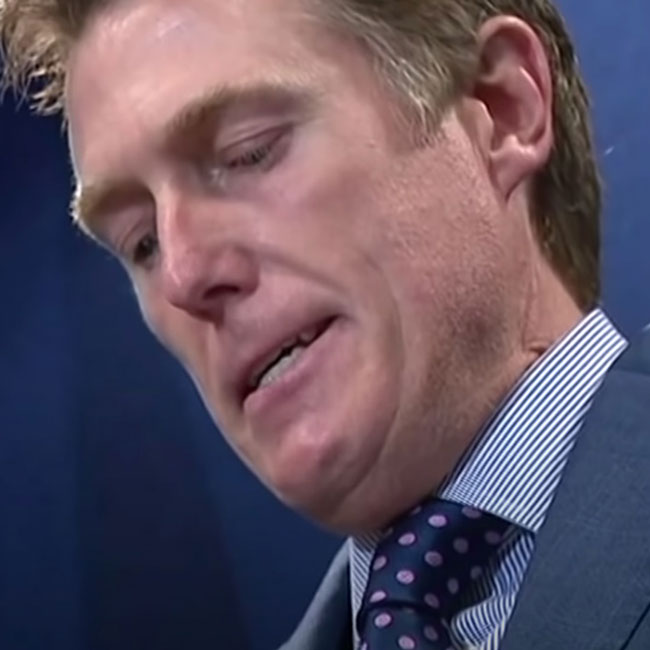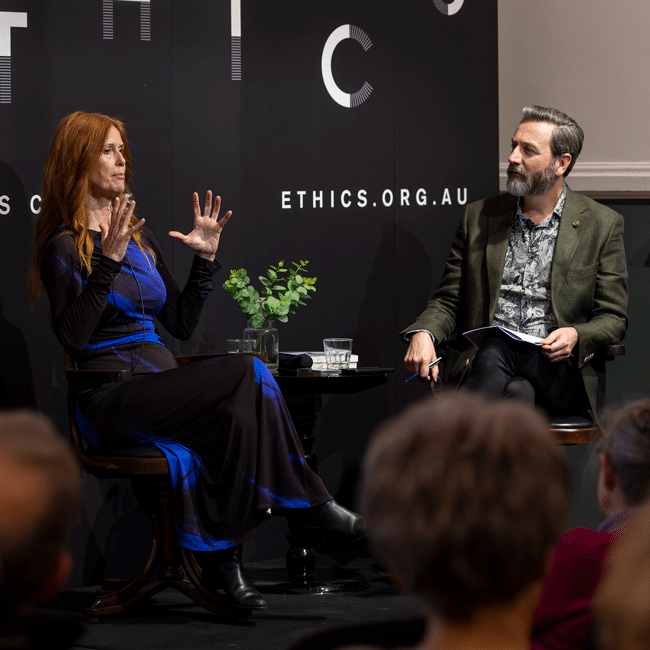Are there limits to forgiveness?

There is a moment of gut-wrenching horror in Simon Wiesenthal’s The Sunflower: On the Possibilities and Limits of Forgiveness.
It begins with Wiesenthal, a Holocaust survivor, at the bedside of a fatally wounded German soldier.
“I am resigned to dying soon,” the soldier said to him. “But before that I want to talk about an experience which is torturing me. Otherwise, I cannot die in peace.” Comforted by Wiesenthal’s attention, the soldier began to confess to his role in a barbaric war crime where around two hundred Jewish men, women, and children were marched into a house and burned alive.
“I must tell you of this horrible deed,” cried the soldier. “Tell you because – you are a Jew.”
The soldier begs for the forgiveness that would grant him a peaceful death. His voice quivered, his hand trembled; his exhaustion and remorse were palpable. But Wiesenthal said nothing. He turned and left the soldier without a word.
A day later, he found out the soldier had died, unforgiven.
Perversely cruel as it might seem, the moment haunts Wiesenthal. Was it wrong to withhold forgiveness to the soldier, given he seemed genuinely repentant?
The Sunflower poses an invitation. “Ask yourself a crucial question, ‘what would I have done?’”, Wiestenthal dares the reader.
Wiesenthal tasks philosophers, theologians, psychologists, and genocide survivors with answering the very same question and features their responses throughout the book.
It’s true that many of us will not find ourselves in such a harrowing situation. But some will. Victims of crime can be invited to participate in restorative justice programs where they face the person who has wronged them. One in five Australian women above fifteen years old have been sexually assaulted or threatened – usually by someone they know.
In these cases, a victim may face an ethical dilemma they haven’t chosen. One that feels cruel to subject them to: they must decide whether to grant or withhold forgiveness.
Earning forgiveness
Should we forgive those who have wronged us? What makes someone worthy of forgiveness? Can forgiveness be wrong?
These questions are important for two reasons. First, forgiveness doesn’t always come naturally. At the moment when we’ve been wronged – often severely and traumatically – it’s doubly difficult to meditate on the ethics of forgiveness.
It’s painful, confusing and morally loaded: after all, who wants to be the person who doesn’t forgive when people who do – even when it seems impossible – is held up as a paragon of virtue and humanity?
But second, we need to understand how forgiveness should work because we’re all going to seek forgiveness at some point. We will all wrong someone else at some stage, in big ways or small. If we’ve done some work thinking about how we want to forgive, we’ve got a roadmap to follow when we’re the ones seeking forgiveness.
In Wiesenthal’s case, the genuine remorse shown by the German soldier is what troubles him. He believes the soldier is truly sorry for what he did. Not everyone agrees – was this man remorseful, or was he just scared to die? But whether or not the soldier was remorseful, we tend to agree that remorse matters for forgiveness. If someone is remorseful, we can at least think about forgiving them. If there’s no remorse, it doesn’t seem like a moral challenge to withhold forgiveness.
Genuine remorse
But expressing remorse is hard. It takes more than the non-pologies theologian L. Gregory Jones calls “spinning sorrow”. It involves acknowledging responsibility and wrongdoing. “I’m sorry you were offended” isn’t remorse. It’s performative, and puts the onus on the victim for their own suffering. In short, it says you were offended; I didn’t do anything offensive. Your suffering is on you. That’s not remorse, that’s pig-headedness.
Remorse demands us to understand the full extent of our wrongdoing.
That it was wrong, why it was wrong, and how that wrongdoing has harmed someone else. Which gives us good reason to think that Wiesthenthal’s soldier is not genuinely remorseful.
The horror of the Holocaust depended on the systematic denial of Jewish personhood. They weren’t seen as individuals – people with lives complex, unique, and infinitely valuable. Instead, they were objects to be treated as others saw fit.
By treating Wiesenthal as ‘a Jew’ – a generic placeholder for the actual people the solider murdered – the German soldier is continuing on with the same abhorrent thinking that led to his crimes in the first place. He doesn’t understand the depth of what he did. How can he then apologise in a way that warrants forgiveness?
The politics of forgiveness
To step away from Wiesenthal’s case for a second, how often do we witness apologies that fail to show any awareness of the source of the wrongdoing? On a political level, we see apologies offered by those who continue to benefit from those injustices. Does this constitute remorse, or a genuine understanding of the wrongdoing?
Take political apologies, for instance: some naysayers to Australia’s National Apology to the Stolen Generations argued that the people apologising weren’t the ones who had done anything wrong. The claim here is if we haven’t done anything wrong, we don’t need to be forgiven; and if we don’t need to be forgiven, why would we apologise?
This perhaps misses an important consideration.
If we continue to benefit from a past wrong and fail to address the source of the continued disadvantage, there is a sense in which we’ve prolonged the wrongdoing.
However, it also calls our attention to the role of status in forgiveness. I cannot offer an apology for a wrong I haven’t been involved in.
Equally, I cannot forgive unless I have been wronged, which also complicates the politics of forgiveness: who has the moral authority to forgive? Could Wiesthenthal, who was treated as a ‘generic Jew’ by the soldier, actually forgive – even if he wanted to? After all, the soldier’s crimes did not directly harm him.
Eva Kor was a Holocaust survivor who offered forgiveness to Josef Mengele, doctor of the notorious ‘twin experiments’ in Auschwitz. Her actions brought criticism from other survivors, who said Kor wasn’t entitled to offer forgiveness on behalf of others. Nor should she pressure them to forgive when they were not ready.
Jona Laks, another ‘Mengele twin’, refused to forgive. In Mengele’s case, this is understandable. But what if there was genuine remorse, a commitment to change, and steps to address the wrongdoing? Would it be wrong to refuse forgiveness?
On some occasions, it seems so. For instance, we consider pettiness – when someone is unable to move past very slight or non-existent wrongs – as a vice, or a mark of bad character. I’m not suggesting a Holocaust survivor (or any Jewish person) who refused to forgive the Nazis under any condition was being petty, but this takes us back to the question posed earlier.
Is there anything that’s unforgiveable?
This brings us to the final question: are there some things which are unforgiveable? How should we think about them?
Maybe. Philosopher, Hannah Arendt believed that unforgiveable crimes were those where no punishment could be given that would be proportionate to the crime itself. Where no atonement is possible, no forgiveness is possible. For Arendt, these crimes are an evil beyond redemption.
In contrast, French philosopher Jacques Derrida argued that conditional forgiveness is in fact, not forgiveness. By withholding forgiveness until considerations (like remorse) are met, Derrida believed that we are forgiving someone who is already innocent – that is, someone who no longer needs forgiveness. Only the unremorseful person remains guilty, and only the unremorseful person actually needs forgiveness.
As a result, Derrida concludes with a paradox: only the unforgiveable can be truly forgiven.
Derrida traces his thinking back to religious traditions where forgiveness is unconditional and uneconomic. It is a gift, not a transaction. This is a view L. Gregory Jones believes is centrally important to avoid “weaponising forgiveness”.
I think it’s important to remember that forgiveness should always be a gift and not an expectation. It’s unfair to expect any person who has been victimized, especially if it’s raw, to be ready to forgive.
And — this is particularly important in domestic violence and other kinds of forgiveness — the expectation of forgiveness is also used as a weapon to punish and perpetuate a cycle. It’s often the case in domestic violence, for example, where the abuser will come and say, “you need to forgive me because you’re a Christian” and the person feels obligated to do that. All that does is perpetuate and intensify the violence rather than remedy it.
So how should we think about Wiesenthal’s case? What would we do? It seems quite evident that he had no duty to forgive this Nazi – and that perhaps he had no right to do so. However, if we set aside the question of legitimacy, how might he make this decision?
Some philosophers have argued that self-respect is central to the way we think about forgiveness. Forgiveness involves a recognition that we have value – that we did not deserve to be wronged, and the other person should not have wronged us.
By forgiving, we assert our status in the moral community – our dignity.
However, others might believe such forgiveness reduces their self-worth – especially if this forgiveness leaves the wrongdoer better off than the victim. Forgiveness can grant peace to wrongdoers – as the German soldier knew – but often leaves the victim alone in their trauma.
Author Susan Cheever once wrote that “Being resentful is like taking poison and waiting for the other person to die”. For some, this may be true. For others, forgiving might be like giving someone a drink while you are dying of thirst.
Should Wiesenthal have forgiven the soldier? It might all depend on what he could swallow and still look at himself in the mirror.
It may all come down to what he wanted to see when he looked in the mirror.
Follow The Ethics Centre on Twitter, Facebook, Instagram and LinkedIn.
Ethics in your inbox.
Get the latest inspiration, intelligence, events & more.
By signing up you agree to our privacy policy
You might be interested in…
Opinion + Analysis
Politics + Human Rights, Relationships
Do Australia’s adoption policies act in the best interests of children?
Explainer
Relationships
Ethics Explainer: Ethical judgement and moral intuition
Opinion + Analysis
Relationships
Come join the Circle of Chairs
Opinion + Analysis
Health + Wellbeing, Relationships
Anthem outrage reveals Australia’s spiritual shortcomings
BY Matthew Beard
Matt is a moral philosopher with a background in applied and military ethics. In 2016, Matt won the Australasian Association of Philosophy prize for media engagement. Formerly a fellow at The Ethics Centre, Matt is currently host on ABC’s Short & Curly podcast and the Vincent Fairfax Fellowship Program Director.
How avoiding shadow values can help change your organisational culture

How avoiding shadow values can help change your organisational culture
Opinion + AnalysisBusiness + Leadership
BY John Neil Michelle Bloom The Ethics Centre 15 MAR 2021
Governing culture is a board’s most challenging task. John Neil and Michelle Bloom of The Ethics Centre outline the dangers of “shadow values”. Here’s how to walk the talk.
This article was first published in the March 2021 edition of Company Director magazine for the Australian Institute of Company Directors.
While an organisation might be measured by its share price, profitability or reputation, it is defined by its culture. Culture matters because it influences everything an organisation does. It defines not only individual and team performance, it also influences how organisations manage, change and navigate complexity and uncertainty. While it is critical to an organisation’s performance and reputation, culture is notoriously difficult to identify, measure and evaluate. As a result, understanding and governing culture is a perennial challenge for boards. This is because it is comprised of implicit and explicit dimensions. It includes the shared values, principles and beliefs of people, how they work together and with each other. Many of these dimensions are visible, but many are not.
On the face of it, corporate values of excellence, respect, integrity and communication are admirable and worthy. Most organisations would be happy to identify with them. But Enron espoused these values only 12 months before declaring bankruptcy in 2001 — the largest in US history. The company had received plaudits for its 64-page code of ethics and Fortune magazine named it “America’s Most Innovative Company”. It had received numerous awards for its corporate citizenship and environmental policies.
Enron’s failings have been well documented as the prototypical case study of what can happen when an organisation decouples values from its behaviours. Less well-documented is how the implicit and unstated dimensions of an organisation’s culture shape and influence for better or worse. These aspects of culture determine what and how things get done in organisations and are driven by the implicit values/principles people hold.
“The biggest challenge for boards in governing culture is that while unspoken dimensions are difficult, but not impossible, to identify and measure, they are more powerful than the official ones because they operate below the surface.” – John Neil, The Ethics Centre
The dark side
The biggest challenge for boards in governing culture is that while unspoken dimensions are difficult, but not impossible, to identify and measure, they are more powerful than official ones because they operate below the surface. They are key to changing an organisation’s culture because they more closely reflect its actual operating culture — its “shadow” values and principles. In psychology, the alter ego is the dark side of human nature. Jung identified it as the “shadow” to describe the subterranean aspects of the psyche; those unpleasant traits we prefer to hide. As in the psyche, the shadow gains its power in an organisation by being repressed and unacknowledged, which manifests in unintended, often detrimental behaviours.
Shadow values are typically cultivated in environments where organisations are stressed by the complexity of changes occurring or a lack of focus on supporting cultural alignment with existing values and principles.
In our work with a financial services company, our evaluation revealed each of its official organisational values had powerful corollaries (shadow values) that served to shift the organisation off course significantly. One of these official values was excellence. While officially expressed in a tagline, it was experienced and evaluated in ways such as “having pride in our work”, “being willing to challenge”, and “continuous improvement”. We also found it manifested itself through a powerful shadow side driven by the unstated value of success — in behaviours such as “individualistic”, “maintain status”, and “hit targets at all cost”.
The key driver of this shadow value was an unwavering focus on “the numbers”. While the measurement of inputs, and outcomes was regarded as a management responsibility, in this individualistically success-oriented culture, hard metrics such as hitting the numbers came to serve as the sole measure of success. Individual behaviours became distorted in pursuit of that goal alone, obscuring non-financial costs and risks, which, when not easily calculable are not seen, let alone prioritised. Unintended consequences of not being aware of or managing shadow values were highlighted in the Banking Royal Commission.
Alternate shadows
The connotations of “shadow” overstate the negative effect of these values. While an organisation’s shadow values at their worst are less constructive mutations of the official ones and will always benefit from being exposed and dealt with, there are two other types, both potentially of great value for an organisation to identify and unlock.
The first is neutral in relation to the existing values/principles but offers significant potential for tipping into positive or negative manifestations. In our work with the Australian Olympic Committee (AOC), its value of excellence — with associated behaviours and traits of exemplary performance and achievement by elite Olympic athletes — was undermined by a powerful shadow cast by the implicit value of pragmatism.
The second type of alternate shadow values reinforce, amplify or supplement official values and principles. These were also present at the AOC (see breakout, right).
In our work with a large superannuation fund, a primary shadow value was that of harmony, operating below the stated value of excellence. The value of excellence was commonly expressed in behaviours such as “keeping costs low”, “continuous improvement” and “leading the industry”. The shadow value of harmony in its most positive expression meant people were respected and included. At its worst, it manifested in the avoidance of conflict, resulting in over-consultation, delaying and avoiding difficult decisions. As a result, excellence was hamstrung by a lack of agility and responsiveness to the changing environment and competitive pressures, with innovative ideas often deferred until unreasonably high standards of mitigation were in place.
Getting below the surface
Particularly for boards wanting a “true read” of a culture, a challenge is getting below the surface-level reporting facade. Because of its intangible nature, culture is not easily distilled into standard metrics. Complaints, grievance resolution time, staff turnover and engagement surveys provide a limited view of the dynamics underpinning the culture — but often, they are the board’s only sources of information. While they may identify a range of proxies for an explicit culture, they are of little use in identifying implicit beliefs, attitudes and behaviours that actually drive the operating culture.
A significant limitation is a reliance on self-reporting. One organisation we worked with displayed a widespread cultural practice in staff surveys and performance reviews. “Click five to stay alive” referred to the five-point Likert scales used to evaluate a leader’s performance — and to an expectation for subordinates to rate leaders as a “five” across all evaluation criteria to avoid recriminations. Not only did these reports give an inaccurate evaluation of performance, they also underlined a range of potential shadow values linked to inappropriate use of positional power, fear of reprisals and lack of trust.
Unless board members are particularly proactive through direct engagement with staff, having visibility of the actual operating culture beyond what management reports provide is difficult. While there is no substitute for direct engagement — in particular with how the executive team works — using tools that better uncover shadow values can help boards better see the risks and opportunities below the surface — and thereby govern more effectively.
John Neil is Director of Innovation and Michelle Bloom Director of Consulting and Leadership at The Ethics Centre. They offer Shadow Value Assessments, working directly with organisations to identify and remedy the alignment gap between the official values and the lived culture and behaviours. Find out more.
Case study: Australian Olympic Committee
Pragmatism was held in high regard as a leadership trait in the AOC. This infiltrated into ways of working and modes of governance. When the organisation shifted into “games mode” where pressures on effective delivery were intense, pragmatism exercised its greatest influence. At times, the ends justified the means, with governance standards, and operating processes temporarily suspended to expedite results. But organisational challenges compounded over time. When the AOC switched back into “non-delivery mode”, it was difficult to recalibrate around its official values, principles and sanctioned ways of working.
In our work with the AOC, we also found shadow values that reinforced the official values. There was a consistently understood and practically used principle of “athletes first”, which reinforced and amplified each of the official values, in particular that of excellence. While not recognised as an official value or principle, it influenced many desirable behaviours, judgements and decisions directly in service of the needs of athletes. In other organisations it may have been expressed as an official value of “service” or a principle such as “act in the client’s best interest”. But as a shadow principle, it was no less effective than these stated principles. It was commonly applied as a rule of thumb to many decisions made throughout the organisation — and most people defaulted to it.
He said, she said: Investigating the Christian Porter Case

He said, she said: Investigating the Christian Porter Case
Opinion + AnalysisPolitics + Human Rights
BY Louise Richardson-Self 10 MAR 2021
On 4 March 2021 Attorney General Christian Porter identified himself as the unnamed Minister who had been accused of a 1988 rape in a letter sent to the Prime Minister and some senators.
He strenuously denies any wrongdoing and has refused to step down from his role.
ABC News reports that ‘the letter urges the Prime Minister to set up an independent parliamentary investigation into the matter’ — but should there be an investigation?
The Problem With Testimony
When it comes to accusations of sexual assault, it seems like the situation comes down to a clash of ‘testimony’ — she said, he said. But who is to be believed?
Testimony, to clarify, isn’t just any old speech act. Testimony is speech that is used as a declaration in support of a fact. “The sky is blue” is testimony; “I like strawberries” isn’t.
Generally, people are hesitant to accept testimony as good, or strong evidence for any sort of claim. This is not because testimony is always unreliable, but because we think that there are more reliable methods of attaining knowledge.
Other methods include direct experience (living through or witnessing something), material collection (looking for evidence to support the truth of a claim), or through the exercise of reason itself (for instance, by way of logic or deductive reasoning).
In this case, it seems like what would need to occur is a fact-finding mission which could add weight either to the testimony of either Porter or the alleged victim.
What is very surprising, then, is that only some people support such an investigation, while others have rejected the move as unnecessary, including Prime Minister Scott Morrison. These people deem Porter’s testimony credible. But should they?
Judging Credibility
It isn’t strange to find that people are willing to treat testimony as sufficient evidence for a claim. We often do. Testimony is used in trials. Every news report is testimony. The scientific truths we have learn from books or YouTube are testimony. You get the picture. We may think we are always sceptical of testimony, but we could hardly get by without it.
So, we do rely on testimony. Just not all testimony. When it comes to believing testimony, what we’re really doing is judging the speaker’s credibility. The question is thus: should we trust what a specific person says about a specific matter in a specific context?
The problem is that we’re actually not very good at working out which speakers are credible and which aren’t. Often we get it wrong. And sometimes we get it wrong because of implicit biases—biases about types of people, biases about institutions, and the sway of authority.
As philosopher Miranda Fricker has pointed out, when people do not receive the credibility they are due—whether because they receive too much (a credibility excess) or too little (a credibility deficit)—and the reason they do not receive it is because of such biases, then a testimonial injustice occurs.
“Being judged credible to some degree is being regarded as more credible than others, less credible than others, and equally credible as others,” explains philosopher José Medina.
In a she said, he said case, if we judge one person as credible, we’re also discrediting the other.
Fricker explains that testimonial injustice produces harms. First, there is a harm caused to the listener: because they didn’t believe testimony they should have, they failed to acquire some new knowledge, which is a kind of harm.
However, testimonial injustices also harms the speaker. When someone’s testimony is doubted without good reason, we disrespect them by doubting their ability to convey truth – which is part of what defines us as humans. This means testimonial injustices symbolically degrade us qua [as] human. Basically, to commit a testimonial injustice means we fail to treat people in a fundamentally respectful way. Instead, we treat them as less than fully human.
Is there a Credibility Deficit or Excess in Porter’s case?
Relevant to the issue of credibility attribution in the wake of a sexual assault allegations is the perception (and fear) shared by many that women lie about sexual assault.
In fact, approximately 95% of sexual assault allegations are true. This means it is highly improbable (but not impossible) that the alleged victim made a false claim.
It is not just stereotyping about lying and vindictive women that can interfere with correct credibility attribution. As Treasurer Josh Frydenberg has reminded us, Porter “is entitled to the presumption of innocence, as any citizen in this country is entitled.”
This commitment we share to presume innocence unless or until guilt is proven is a significant bulwark of our ethico-legal value system.
However, in a case of “she said, he said”, his entitlement to the presumption of innocence automatically generates the assumption that the victim is lying. Given that false rape allegations are so infrequent, the presumption of innocence unfairly undermines the credibility of the complainant almost every time.
This type of testimonial injustice may seem unavoidable because we cannot give up the presumption of innocence; it is too important. However, the insistence that Porter receive the presumption of innocence rather than insisting we believe the statistically likely allegations against him may point to another problem with the way assign credibility.
As philosopher Kate Manne has observed, particularly when it comes to allegations made by women of sexual assault by men, the accused are often received with himpathy—that is, they receive a greater outpouring of sympathy and concern over the complainants. She explains, “if someone sympathizes with the [accused] initially…he will come to figure as the victim of the story. And a victim narrative needs a villain…”
So here’s the rub.
If a great many people in a society share the view that women lie, then they tacitly see complainants as uncredible.
And if a great many people in a society feel sorry for certain men who are accused of sexual assault, then they are likely to side with the accused. In turn, those who are accused of sexual assault (usually, men) will automatically receive a credibility excess.
Is this what has happened in Porter’s case? Note that an investigation could lend credibility to either party’s claims. This is where the police would normally step in.
Didn’t the Police Investigate and Exonerate Porter?
You would be forgiven for thinking that NSW Police had conducted a thorough investigation and had cleared Porter’s name judging by the way some powerful parliamentary figures have responded to Porter’s case.
For example, in his dismissal of calls for an independent investigation, Scott Morrison said that it “would say the rule of law and our police are not competent to deal with these issues.” Likewise, Treasurer Josh Frydenberg said: “The police are the only body that are authorised to deal with such serious criminal matters.” Nationals Senator Susan MacDonald also opposed the investigation, saying: “We have a system of justice in this country [and] a police service that is well resourced and the most capable of understanding whether or not evidence needs to go to trial — and they have closed the matter.”
Case closed. This must mean that there’s no evidence and that an independent inquiry would be pointless, right?
Not quite. NSW Police stated that there was “insufficient admissible evidence” to proceed with an investigation. They did not say that there was no evidence of misconduct. Moreover, the issue for criminal proceedings is that the alleged victim did not make a formal statement before she took her own life.
In other words, the complainant’s testimony does not get to count as evidence because, technically, there is no testimony on the record.
Preventing Testimonial Injustice
Since the alleged victim had not made a formal statement to Police at the time of her death, the call for an investigation into Porter’s conduct can be seen as a means of ensuring Porter does not receive a testimonial credibility excess and the complainant a testimonial credibility deficit.
To stand by Porter’s testimony in a context where it is widely – and falsely – believed that women make false rape allegations, and where the police are seen as the only body capable of exercising an investigation (when in fact they are not), would be to commit a testimonial injustice.
As former Liberal staffer and lawyer Dhanya Mani says, “The fact that the police are not pursuing the matter for practical reasons does not preclude or prevent the Prime Minister from undertaking an inquiry into a very serious allegation… And that inquiry will either exonerate Christian Porter and prove his innocence or it will prove otherwise.”
It is important to understand that an independent investigation is not bound by the exact same evidentiary rules as are the police and courts. It may be possible for others to testify on her behalf. Other evidence which is inadmissible in court may be admissible here. An independent investigation at least offers the possibility that the complainant’s testimony will get a fair hearing.
Also worth noting is where the presumption of innocence would end. For a crime, guilt should be proved beyond a reasonable doubt. For civil cases, that standard is “on the balance of probabilities”. What standard should an independent investigation use? I would suggest the latter, precisely because testimony is likely to be all the evidence there is.
To prevent a testimonial injustice—attributing too much credibility, or too little, to someone undeserving of it—these allegations must be investigated.
Ethics in your inbox.
Get the latest inspiration, intelligence, events & more.
By signing up you agree to our privacy policy
You might be interested in…
Opinion + Analysis
Politics + Human Rights, Relationships
How to have a conversation about politics without losing friends
Opinion + Analysis
Politics + Human Rights
A note on Anti-Semitism
Opinion + Analysis
Politics + Human Rights
Trump and tyrannicide: Can political violence ever be justified?
Opinion + Analysis
Politics + Human Rights, Relationships
What’s the use in trying?
BY Louise Richardson-Self
Louise Richardson-Self is a Lecturer in Philosophy and Gender Studies at the University of Tasmania and an Australian Research Council Discovery Early Career Researcher Awardee (2019). Her current research focuses are the problem online hate speech, and the tension between LGBT+ non-discrimination and religious freedom. She is the author of Justifying Same-Sex Marriage: A Philosophical Investigation (2015) and her second book, Hate Speech Against Women Online: Concepts and Countermeasures is due for publication in 2021.
Seven Female Philosophers You Should Know About

Seven Female Philosophers You Should Know About
Big thinkerRelationships
BY The Ethics Centre 8 MAR 2021
There’s no question that philosophy is littered with the workings of male minds. What’s less known are the many brilliant women whose contributions throughout history have shaped our world today. Here are seven female philosophers to celebrate this International Women’s Day.

Mary Wollstonecraft
Mary Wollstonecraft (1759-1797) was a writer, philosopher and social activist. Wollstonecraft’s manifesto is 225+ years old, but far from obsolete. She passionately articulated for women to have equal rights to men in A Vindication of the Rights of Woman in 1792, a century before the term feminism was coined. In a social system where women were “kept in ignorance” by the socioeconomic necessity of marriage and a lack of formal education, Wollstonecraft advocated for a free national schooling system where girls and boys would be taught together. The word patriarchy was not available to Wollstonecraft, yet she argued men were invested in maintaining a society where they held power and excluded women.
“My own sex, I hope, will excuse me, if I treat them like rational creatures, instead of flattering their fascinating graces, and viewing them as if they were in a state of perpetual childhood, unable to stand alone.”
bell hooks
An outspoken professor, author, activist and cultural critic, bell hooks (1952 – 2021) work explores the connections between race, gender, and class. “Ain’t I A Woman” laid the groundwork for hooks progressive feminist theory, linking historical evidence of the sexism endured by black female slaves to its long-standing legacy on black women today. Born Gloria Watkins, hooks adopted her pen name after her late grandmother, wanting it written in lower case to shift the attention from her identity to her ideas. Now 38 years on from its original publication, her work remains radically relevant to the world today.
“A devaluation of black womanhood occurred as a result of the sexual exploitation of black women during slavery that has not altered in the course of hundreds of years.”
Simone De Beauvoir
Simone de Beauvoir (1908-1986) was a French author, feminist and existential philosopher. She lived an unconventional life as a working experiment of her ideas. As an existentialist, de Beauvoir believed in living authentically and argued that people must choose for themselves who they want to be and how they want to live. The more pressure society – and other people – place on you, the harder it is to make that authentic choice, particularly for women. In her best-known work, ‘The Second Sex’ she famously posed that women are not born, they are made. Meaning that there is no essential definition of womanhood, rather social norms work hard to force them into a notion of femininity
“Man is defined as a human being and woman as a female – whenever she behaves as a human being she is said to imitate the male.”

Shulamith Firestone
Shulamith Firestone (1945-2012) was a writer, artist, and feminist whose book, The Dialectic of Sex, argued the structure of the biological family was primarily to blame for the oppression of women. Firestone proposed that over the course of human history, society itself had come to mirror the structure of the biological family and was the source from which all other inequalities developed. With a radical and uncompromising vision, she advocated for the development of reproductive technologies that would free women from the responsibilities of childrearing, dismantle the hierarchy of family life and set the foundations for a truly egalitarian society.
“the end goal of feminist revolution must be… not just the elimination of male privilege, but of the sex distinction itself.”
Hannah Arendt
Johannah “Hannah” Arendt (1906 – 1975) was a German Jewish political philosopher who left life under the Nazi regime for nearby European countries before settling in the United States. Informed by the two world wars she lived through, her reflections on totalitarianism, evil, and labour have been influential for decades. Arendt’s most well-known idea is “the banality of evil”, explored in 1963 in a piece for The New Yorker that covered the trial of a Nazi bureaucrat, Adolf Eichmann. Following the election of Donald Trump, sales of Arendt’s book The Origins of Totalitarianism, already one of the most important works of the 20th century, increased by 1600%.
“The sad truth is that most evil is done by people who never make up their minds to be good or evil.”
Martha Nussbaum
Martha Nussbaum (1947-present) is one of the world’s most influential living moral philosophers, trailblazing in her philosophical advocacy for religious tolerance, feminism and the merits of emotions. Nussbaum believes the ethical life is about vulnerability and embracing uncertainty. She famously argued for the place of emotions within politics, saying democracy simply doesn’t work without love and compassion. In ‘Not for Profit: Why Democracy Needs the Humanities’ Nussbaum took on the education system, proposing that its role is not to produce an economically productive and useful citizen, but people who are imaginative, emotionally intelligent and compassionate.
“To be a good human being is to have a kind of openness to the world, an ability to trust uncertain things beyond your own control.”

Simone Weil
Simone Weil (1909–1943) was a Philosopher, Christian mystic and political activist in the French Resistance, who TS Eliot called a “genius akin to that of the saints”. Weil gave attention to working conditions and is known to have given up a life of privileged to work in factories. This experience shaped her writings, which consider the relationship between individual and state, the nature of knowledge, the spiritual shortcomings of industrialism and suffering as key to the human condition. In The Need for Roots, Weil argued that society suffered an ‘uprootedness’, a deep malaise in the human condition due to a lack of connectedness to past, land, community and spirituality.
“To be rooted is perhaps the most important and least recognized need of the human soul.”
Ethics in your inbox.
Get the latest inspiration, intelligence, events & more.
By signing up you agree to our privacy policy
You might be interested in…
Opinion + Analysis
Relationships, Society + Culture
FODI launches free interactive digital series
Opinion + Analysis
Relationships
In defence of platonic romance
Opinion + Analysis
Health + Wellbeing, Relationships
Germaine Greer is wrong about trans women and she’s fuelling the patriarchy
Opinion + Analysis
Politics + Human Rights, Relationships
Want #MeToo to serve justice? Use it responsibly.
BY The Ethics Centre
The Ethics Centre is a not-for-profit organisation developing innovative programs, services and experiences, designed to bring ethics to the centre of professional and personal life.
Big Thinker: Aristotle

It is hard to overstate the impact that Aristotle (384 BCE—322 BCE) has had on Western philosophy.
He, along with his teacher Plato, set the tone for over two millennia of philosophical enquiry, with much subsequent work either building on or refuting his ideas.
His influence on philosophy has been unparalleled for over two thousand years, in fields including logic, metaphysics, science, ethics and politics.
Aristotle was born in the 4th century BC in Thrace, in the north of Greece. At around 18 years of age he moved south to Athens, the capital of philosophical thought, to study under Plato at his famous Academy. He spent around two decades there, absorbing – but not always agreeing with – Plato and his disciples.
After Plato’s death, he departed Athens and landed a gig tutoring the teenage Alexander of Macedon – soon to be Alexander the Great. However, it appears Aristotle summarily failed to imbue the budding general with a taste for either philosophy or ethics.
After Alexander was appointed regent of Macedon at the age of 16, Aristotle returned to Athens, where he established the Lyceum, his own philosophical school where he taught and wrote on a startling array of topics.
His followers became known as peripatetics, after the Greek word for “walking”, due to the walkways that surrounded the school and Aristotle’s reputed tendency to give lectures on the move.
Ethics and Eudaimonia
One of the areas of lasting impact was Aristotle’s work on ethics and politics, which he considered to be intimately related subjects (much to the surprise of modern folk).
His ethical theory was based on the idea that each of us ultimately seeks a concept he called eudaimonia, often translated as “happiness” but better rendered as “flourishing” or “wellbeing.”
The basic idea is that every (non-frivolous) thing we do is directed towards achieving some end. For example, you might fetch an apple from the fruit bowl to sate your hunger. But it doesn’t stop there. You might sate your hunger to promote your health, and you might promote your health because it enables you to do other things that you want to do – and so on.
Aristotle argued that if you follow this chain of ends all the way down, you’ll eventually reach something that you do because it’s an ‘end in itself’, not because it leads to some other end. He argued that the enlightened individual would inevitably arrive at the single ultimate end or good: eudaimonia.
Aristotle’s ethical theory is more like a theory of enlightened prudence or ‘practical wisdom’, which he called phronesis, that helps guide people towards achieving eudaimonia.
This sets Aristotle’s ethics apart from many modern ethical theories, such as utilitarianism, in that he’s not calling for us to maximise happiness or eudaimonia for all people but only helping us to live a good life.
Compared to more modern ethical theories, he is also less focused on explicit issues of preventing harm or preventing injustice than on the cultivation of good people.
Whereas the primary question guiding many ethical theories is ‘what should we do?’, Aristotle’s main concern is ‘how should we live?’.
Virtues and Friendship
This doesn’t mean Aristotle disregarded how we ought to behave towards others. Indeed, he argued that the best way to achieve eudaimonia was to embody certain virtues, such as honesty, courage and charity, which encourage us to be good to other people.
Each of these virtues occupies a “golden mean” between two extremes, which were considered vices. So too little courage was cowardice, and too much was recklessness, but just enough would lead to decisions that would promote eudaimonia.
He also lent us a useful term, akrasia, which means a kind of weakness of will, whereby people do the wrong thing not due to embodying vices, but by some inability to resist temptation.
We have all likely experienced akrasia from time to time, such as when we devour that last cookie or lie to escape blame, which we know is not conducive to our health or ethical flourishing.
While Aristotle’s “virtue ethics” fell out of favour for many centuries, it has enjoyed a resurgence since the mid-20th century and has a growing following today.
Aristotle also argued that one of the benefits of being a virtuous person was the kinds of friendships you could form.
The second reason is because you think they’re fun to be around, such as when two people simply enjoy each other’s company or enjoy shared activities like watching sport or playing board games, but don’t have any deeper connection when those activities are absent.
It’s the third type of friendship that Aristotle thought was the highest, which is when you like someone because they are a good person.
This is a mutual recognition of virtuous character, and you have reciprocal good will, where you genuinely care for them – even love them – and want the best for them. Aristotle argued that by cultivating virtues, and seeking out other virtuous people, we could form the strongest and most nourishing friendships.
Interestingly, modern science has vindicated the idea that one of the most important factors in living a happy and fulfilled life is the number of genuine and deep relationships one has, particularly with friends whom they care for and who care for them in return.
Artistotle on Politics
Aristotle’s political theory concerned how to structure a society in such a way that it enabled all its citizens to achieve eudaimonia.
His ancient Greek predilections – as well as the influence of Plato, who believed society should be ruled by ‘Philosopher Kings’ – are visible in his contempt for democracy in favour of rule by an enlightened aristocracy or monarchy.
However, Aristotle disagreed with his mentor in one important respect: Aristotle favoured private property, which he said promoted personal responsibility and fostered a kind of meritocracy that treated great achievers as being more morally worthy than the ‘lazy’.
The breadth, sophistication and influence of Aristotle’s thinking is formidable, especially considering that we only have access to 31 of the 200+ treatises that he wrote during his lifetime.
Tragically, the rest were lost in antiquity. While much of Aristotle’s philosophy is contested today given developments in logic and science over the last few centuries, arguably many of these developments were built on or were inspired by his work.
Ethics in your inbox.
Get the latest inspiration, intelligence, events & more.
By signing up you agree to our privacy policy
You might be interested in…
Opinion + Analysis
Health + Wellbeing, Relationships
Living well or comfortably waiting to die?
Opinion + Analysis
Relationships
Should we abolish the institution of marriage?
Big thinker
Politics + Human Rights
Big Thinker: John Locke
Big thinker
Health + Wellbeing, Politics + Human Rights, Relationships
Big Thinker: Judith Butler
BY Dr Tim Dean
Dr Tim Dean is Philosopher in Residence at The Ethics Centre and author of How We Became Human: And Why We Need to Change.
Who's to blame for Facebook’s news ban?

Who’s to blame for Facebook’s news ban?
Opinion + AnalysisPolitics + Human RightsScience + Technology
BY Matthew Beard 25 FEB 2021
News will soon return to Facebook, with the social media giant coming to an agreement with the Australian government. The deal means Facebook won’t be immediately subject to the News Media Bargaining Code, so long as it can strike enough private deals with media companies.
Facebook now has two months to mediate before the government gets involved in arbitration. Most notably, Facebook have held onto their right to strip news from the platform to avoid being forced into a negotiation.
Within a few days, your feed will return to normal, though media companies will soon be getting a better share of the profits. It would be easy to put this whole episode behind us, but there are some things that are worth dwelling on – especially if you don’t work in the media, or at a social platform but are, like most of us, a regular citizen and consumer of news. Because when we look closely at how this whole scenario came about, it’s because we’ve largely been forgotten in the process.
Announcing Facebook’s sudden ban on Australian news content last week, William Easton, Managing Director of Facebook Australia & New Zealand wrote a blog post outlining the companies’ reasons. Whilst he made a number of arguments (and you should read them for yourself), one of the stronger claims he makes is that Facebook, unlike Google Search, does not show any content that the publishers did not voluntarily put there. He writes:
“We understand many will ask why the platforms may respond differently. The answer is because our platforms have fundamentally different relationships with news. Google Search is inextricably intertwined with news and publishers do not voluntarily provide their content. On the other hand, publishers willingly choose to post news on Facebook, as it allows them to sell more subscriptions, grow their audiences and increase advertising revenue.”
The crux of the argument is this. Simply by existing online, a news story can be surfaced by Google Search. And when it is surfaced, a whole bunch of Google tools – previews, summaries from Google Home, one-line snippets and headlines – give you a watered-down version of the news article you search for. They give you the bare minimum info in an often-helpful way, but that means you never click the site or read the story, which means no advertising revenue or way of knowing the article was actually read.
But Facebook is different – at least, according to Facebook. Unless news media upload their stories to Facebook, which they do by choice, users won’t see news content on Facebook. And for this reason, treating Facebook and Google as analogous seems unfair.
Now, Facebook’s claims aren’t strictly true – until last week, we could see headlines, a preview of the article and an image from a news story posted on Facebook regardless of who posted it there. And that headline, image and snippet are free content for Facebook. That’s more or less the same as what Facebook says Google do: repurposing news content that can be viewed without ever having to leave the platform.
However, these link previews are nowhere near as comprehensive as what Google Search does to serve up their own version of news stories for the company’s own purpose and profit. Most of the news content you see on Facebook is there because it was uploaded there by media companies – who often design video or visual content explicitly to be uploaded to Facebook and to reach their audience.
However, on a deeper level, there seem to be more similarities between Google and Facebook than the latter wants to admit, because the size and audience base Facebook possesses makes it more-or-less essential for media organisations to have a presence there. In a sense, the decision to have a strategy on Facebook is ‘voluntary’, but it’s voluntary in the same way that it’s voluntary for people to own an attention-guzzling, data sucking smartphone. We might not like living with it, but we can’t afford to live without it. Like inviting your boss to your wedding, it’s voluntary, but only because the other options are worse.
Facebook would likely claim innocence of this. Can they really be blamed for having such an engaging, effective platform? If news publishers feel obligated to use Facebook or fall behind their competitors that’s not something Facebook should feel bad about or be punished for. If, as Facebook argue, publishers use them because they get huge value from doing so, it does seem genuinely voluntary – desirable, even.
Even if this is true, there are two complications here. First, if news media are seriously reliant on Facebook, it’s because Facebook deliberately cultivated that. For example, five years ago Facebook was a leading voice behind the ‘pivot to video’, where publishers started to invest heavily in developing video content. Many news outlets drastically reduced writing staff and investment in the written word, instead focussing on visual content.
Three years later, we learned that Facebook had totally overstated the value of video – the pivot to video, which served Facebook’s interests, was based on a self-serving deception. This isn’t the stuff of voluntary, consensual relationships.
Let’s give Facebook a little benefit of the doubt though. Let’s say they didn’t deliberately cultivate the media’s reliance on their platform. Still, it doesn’t follow obviously from this that they have no responsibility to the media for that reliance. Responsibility doesn’t always come with a sign-up sheet, as technology companies should know all too well.
French theorist Paul Virilio wrote that “When you invent the ship, you also invent the shipwreck; when you invent the plane you also invent the plane crash; and when you invent electricity, you invent electrocution.” Whilst Virilio had in mind technology’s dualistic nature, modern work in the ethics of technology invites us to interpret this another way.
If inventing a ship also invents shipwrecks, it might be up to you to find ways to stop people from drowning.
Technology companies – Facebook included – have wrung many a hand talking about the ‘unintended consequences’ of their design and accepting responsibility for them. In fact, speaking before a US Congress Committee, Mark Zuckerberg himself conceded as much, saying:
“It’s clear now that we didn’t do enough to prevent these tools from being used for harm, as well. And that goes for fake news, for foreign interference in elections, and hate speech, as well as developers and data privacy. We didn’t take a broad enough view of our responsibility, and that was a big mistake. And it was my mistake. And I’m sorry. I started Facebook, I run it, and I’m responsible for what happens here.”
It seems unclear why Facebook recognised their responsibility in one case, but seem to be denying it in another. Perhaps the news media are not reliant – or used by – Facebook in the same way as they are Google, but it’s not clear this goes far enough to free Facebook of responsibility.
At the same time, we should not go too far the other way, denying the news media any role in the current situation. The emergence of Facebook as a lucrative platform seems to have led the media to a Faustian pact – selling their soul for clicks, profit and longevity. In 2021 it seems tired to talk about how the media’s approach to news – demanding virality, speed, shareability – are a direct result of their reliance on platforms like Facebook.
The fourth estate – whose work relies on them serving the public interest – adopted a technological platform and in so doing, adopted its values as their own: values that served their own interests and those of Facebook rather than ours. For the media to now lament Facebook’s decision as anti-democratic denies the media’s own blameworthiness for what we’re witnessing.
But the big reveal is this: we can sketch out all the reasons why Facebook or the media might have the more reasonable claim here, or why they share responsibility for what went down, but in doing so, we miss the point. This shouldn’t be thought of as a beef between two industries, each of whom has good reasons to defend their patch.
What needs to be defended is us: the community whose functioning and flourishing depends on these groups figuring themselves out.
Facebook, like the other tech giants, have an extraordinary level of power and influence. So too do the media. Typically, we don’t to allow institutions to hold that kind of power without expecting something in return: a contribution to the common good. This understanding – that powerful institutions hold their power with the permission of a community they deliver value to – is known as a social license.
Unfortunately, Facebook have managed to accrue their power without needing a social license. All power, no permission.
This is in contrast to the news media, whose powers aren’t just determined by their users and market share, but by the special role we afford them in our democracy, the trust and status we afford their work isn’t a freebie: it needs to be earned. And the way it’s earned is by using that power in the interests of the community – ensuring we’re well-informed and able to make the decisions citizens need to make.
The media – now in a position to bargain with Facebook – have a choice to make. They can choose to negotiate in ways that make the most business sense for them, or they can choose to think about what arrangements will best serve the democracy that they, as the ‘fourth estate’, are meant to defend. However, at the very least they know that the latter is expected of them – even if the track record of many news publishers gives us reason to doubt.
Unfortunately, they’re negotiating with a company whose only logic is that of a private company. Facebook have enormous power, but unlike the media, they don’t have analogous mechanisms – formal or informal – to ensure they serve the community. And it’s not clear they need it to survive. Their product is ubiquitous, potentially addictive and – at least on the surface – free. They don’t need to be trusted because what they’re selling is so desirable.
This generates an ethical asymmetry. Facebook seem to have a different set of rules to the media. Imagine, for a moment, if the media chose to stop reporting for a fortnight to protest a new law. The rightful outrage we would feel as a community would be palpable. It would be nearly unforgivable. And yet we do not hold Facebook to the same standards. And yet, perhaps at this point, they’ve made themselves almost as influential.
There’s a lot that needs to happen to steady the ship – and one of the most frustrating things about it is that as individuals, there isn’t a lot we can do. But what we can do is use the actual license we have with Facebook in place of a social license.
If we don’t like the way a news organisation conducts themselves, we cancel our subscriptions; we change the channel. If you want to help hold technology companies to account, you need to let your account to the talking. Denying your data is the best weapon you’ve got. It might be time to think about using it – and if not, under what circumstances you might.
This project is supported by the Copyright Agency’s Cultural Fund.
Ethics in your inbox.
Get the latest inspiration, intelligence, events & more.
By signing up you agree to our privacy policy
You might be interested in…
Opinion + Analysis
Society + Culture, Politics + Human Rights
Taking the cynicism out of criticism: Why media needs real critique
Opinion + Analysis
Science + Technology
Australia, we urgently need to talk about data ethics
Opinion + Analysis
Business + Leadership, Science + Technology
5 dangerous ideas: Talking dirty politics, disruptive behaviour and death
Opinion + Analysis
Science + Technology, Business + Leadership
3 things we learnt from The Ethics of AI
BY Matthew Beard
Matt is a moral philosopher with a background in applied and military ethics. In 2016, Matt won the Australasian Association of Philosophy prize for media engagement. Formerly a fellow at The Ethics Centre, Matt is currently host on ABC’s Short & Curly podcast and the Vincent Fairfax Fellowship Program Director.
Tim Soutphommasane on free speech, nationalism and civil society

Tim Soutphommasane on free speech, nationalism and civil society
Opinion + AnalysisBusiness + LeadershipPolitics + Human RightsRelationships
BY The Ethics Centre 18 FEB 2021
We believe conversations matter. So when we had the opportunity to chat with Tim Soutphommasane we leapt at the chance to explore his ideas of a civil society. Tim is an academic, political theorist and human rights activist. A former public servant, he was Australia’s Race Discrimination Commissioner at the Australian Human Rights Commission from 2013 – 2018 and has been a guest speaker at the Festival of Dangerous Ideas. Now a professor at Sydney University, he shared with The Ethics Centre his thoughts on the role of the media, free speech, racism and national values.
What role should the media play in supporting a civil society?
The media is one place where our common life as a society comes into being. It helps project to us our common identity and traditions. But ideally media should permit multiple voices, rather than amplify only the voices of the powerful. When it is dominated by certain interests, it can destroy rather than empower civil society.
How should a civil society reckon with the historical injustices it benefits from today?
A mature society should be able to make sense of history, without resorting to distortion. Yet all societies are built on myths and traditions, so it’s not easy to achieve a reckoning with historical injustice. But, ultimately, a mature society should be able to take pride in its achievements and be critical of its failings – all while understanding it may be the beneficiary of past misdeeds, and that it may need to make amends in some way.
Should a civil society protect some level of intolerance or bigotry?
It’s important that society has the freedom to debate ideas, and to challenge received wisdom. But no freedom is ever absolute. We should be able to hold bigotry and intolerance to account when it does harm, including when it harms the ability of fellow citizens to exercise their individual freedoms.
What do you think we can do to prevent society from becoming a ‘tyranny of the majority’?
We need to ensure that we have more diverse voices represented in our institutions – whether it’s politics, government, business or media.
What is the right balance between free speech and censorship in a civil society?
Rights will always need to be balanced. We should be careful, though, to distinguish between censorship and holding others to account for harm. Too often, when people call out harmful speech, it can quickly be labelled censorship. In a society that values freedom, we naturally have an instinctive aversion to censorship.
How can a society support more constructive disagreement?
Through practice. We get better at everything through practice. Today, though, we seem to have less space or time to have constructive or civil disagreements.
What is one value you consider to be an ‘Australian value’?
Equality, or egalitarianism. As with any value, it’s contested. But it continues to resonate with many Australians.
Do you believe there’s a ‘grand narrative’ that Australians share?
I think a national identity and culture helps to provide meaning to civic values. What democracy means in Australia, for instance, will be different to what it means in Germany or the United States. There are nuances that bear the imprint of history. At the same time, a national identity and culture will never be frozen in time and will itself be the subject of contest.
And finally, what’s the one thing you’d encourage everyone to commit to in 2021?
Talk to strangers more.
To read more from Tim on civil society, check out his latest article here.
Tim Soutphommasane is a political theorist and Professor in the School of Social and Political Sciences, The University of Sydney, where he is also Director, Culture Strategy. From 2013 to 2018 he was Race Discrimination Commissioner at the Australian Human Rights Commission. He is the author of five books, including The Virtuous Citizen (2012) and most recently, On Hate (2019).
This project is supported by the Copyright Agency’s Cultural Fund.
Ethics in your inbox.
Get the latest inspiration, intelligence, events & more.
By signing up you agree to our privacy policy
You might be interested in…
Opinion + Analysis
Climate + Environment, Politics + Human Rights
Limiting immigration into Australia is doomed to fail
Opinion + Analysis
Relationships
Who are you? Why identity matters to ethics
Opinion + Analysis
Relationships
Only love deserves loyalty, not countries or ideologies
Explainer
Politics + Human Rights
Ethics Explainer: Just War Theory
Join our newsletter
BY The Ethics Centre
The Ethics Centre is a not-for-profit organisation developing innovative programs, services and experiences, designed to bring ethics to the centre of professional and personal life.
Ethics Explainer: Moral Relativism

Moral relativism is the idea that there are no absolute rules to determine whether something is right or wrong. Unlike moral absolutists, moral relativists argue that good and bad are relative concepts – whether something is considered right or wrong can change depending on opinion, social context, culture or a number of other factors.
Moral relativists argue that there is more than one valid system of morality. A quick glance around the world or through history will reveal that no matter what we happen to believe is morally right and wrong, there is at least one person or culture that believes differently, and holds their belief with as much conviction as we do.
This existence of widespread moral diversity throughout history, between cultures and even within cultures, has led some philosophers to argue that morality is not absolute, but rather that there might be many valid moral systems: that morality is relative.
Understanding Moral Relativism
It’s worth pointing out that the philosophical notion of moral relativism is quite different from how the term is often used in everyday conversation. Many people have been known to say that others are entitled to their views and that we have no right to impose our view of morality on them.
This might look like moral relativism, but in many cases it’s really just an appeal for tolerance in a pragmatic or diplomatic sense, while the speaker quietly remains committed to their particular moral views. Should that person be confronted with what they consider a genuine moral violation, their apparent tolerance is likely to collapse back into absolutism.
Moral relativism is also often used as a term of derision to refer to the idea that morality is relative to whatever someone happens to believe is right and wrong at the time. This implies a kind of radical anything-goes moral nihilism that few, if any, major philosophers have supported. Rather, philosophers who have advocated for moral relativism of some sort or another have offered far more nuanced views. One reason to take moral relativism seriously is the idea that there might be some moral disagreements that cannot be conclusively resolved one way or the other.
If we can imagine that even idealised individuals, with perfect rationality and access to all the relevant facts, might still disagree over at least some contentious moral matters – like whether suicide is permissible, if revenge is ever justified, or whether loyalty to friends and family could ever justify lying – then this would cast doubt on the idea that there is a single morality that applies to all people at all times in favour of some kind of moral relativism.
Exploring Relativity
The key question for a moral relativist is what morality ought to be relative to. Gilbert Harman, for example, argues that morality is relative to an agreement made among a particular group of people to behave in a particular way. So “moral right and wrong (good and bad, justice and injustice, virtue and vice, etc.) are always relative to a choice of moral framework. What is morally right in relation to one moral framework can be morally wrong in relation to a different moral framework.
And no moral framework is objectively privileged as the one true morality.
It’s like different groups playing different codes of football, wherein one code a handball might be allowed but in another, it’s prohibited. So whether handball is wrong is simply relative to which code the group has agreed to play.
Another philosopher, David Wong, argues for “pluralistic relativism,” whereby different societies can abide by very different moral systems. So morality is relative to the particular system they have constructed to solve internal conflicts and respond to the social challenges their society faces.
However, there are objective facts about human nature and wellbeing that constrain what a valid moral system can look like, and these constraints “are not enough to eliminate all but one morality as meeting those needs.” They do eliminate perverse systems, like Nazi morality that would justify genocide, but allow for a wide range of other valid moral views.
Moral relativism is a much misunderstood philosophical view. But there is a range of sophisticated views that attempt to take seriously the great diversity of moral systems and attitudes that exist around the world, and attempts to put them in the context of the social and moral problems that each society faces, rather than suggesting there is a single moral code that ought to apply to everyone at all times.
Ethics in your inbox.
Get the latest inspiration, intelligence, events & more.
By signing up you agree to our privacy policy
You might be interested in…
Opinion + Analysis
Health + Wellbeing, Relationships
The etiquette of gift giving
Opinion + Analysis
Health + Wellbeing, Relationships, Society + Culture
Look at this: the power of women taking nude selfies
Opinion + Analysis
Relationships, Society + Culture
Meet Eleanor, our new philosopher in residence
Opinion + Analysis
Society + Culture, Relationships
Do we exaggerate the difference age makes?
BY Dr Tim Dean
Dr Tim Dean is Philosopher in Residence at The Ethics Centre and author of How We Became Human: And Why We Need to Change.
Settler rage and our inherited national guilt

Settler rage and our inherited national guilt
Opinion + AnalysisPolitics + Human Rights
BY Sarah Maddison 21 JAN 2021
Professor Marcia Langton offers a distinctive term for settler-Australian racism towards Aboriginal and Torres Strait Islander peoples. She calls it the ‘settler mentality’. In her FODI Digital lecture Langton suggests that the experience of living unjustly on stolen Indigenous lands has produced in settler Australians a ‘peculiar hatred’ expressed through ‘settler rage against the people with whom they will not treat.’
While Langton observes the manifold evidence of ‘classical, formal racism’, she maintains that the underlying problem in Australia is ‘a settler population that cannot come to terms with its Indigenous population.’ Here, Langton touches upon a long running debate among scholars seeking to understand the ongoing conflict in Indigenous-settler relations. For some, race—and racism—are the primary lens for understanding both historical and contemporary injustice.
On this view, colonialism is in service to racism, enabling a white supremacist nation to take root on this continent. There is an abundance of evidence to support that claim, for example in the history of eugenicist practices in Australia including the ‘degrees of blood’ that for decades were used to justify the separation Aboriginal and Torres Strait Islander children from their families.
But for me there has always been more weight to support the counter view expressed by Langton.
Racism is real, certainly, but it operates in service to colonialism.
Colonialism cares less about the skin colour of the peoples it dispossesses and far more about accessing and controlling their land. It is in pursuit of land and the resources in and of that land that colonisers everywhere have committed atrocities against Indigenous peoples.
Australia is no exception. It is colonisation and the subsequent failure to negotiate treaties with First Nations on this continent that give rise to the settler state’s moral and legal illegitimacy. Colonisation is violent—no people anywhere in the world have been dispossessed of their land peacefully, and again, Australia is no exception.
Despite the state’s steadfast refusal to properly acknowledge this history, the evidence of over a century of frontier warfare is no secret. It never has been.
In her address, Langton mentions Australian historian Henry Reynolds’ book, This Whispering in Our Hearts, about those who recognised the injustices being perpetrated and were prepared to contest the violence of colonisation.
Langton points out that these settlers were well aware that they had ‘committed a monstrous crime’ and suggests that the criminality of the settler has produced in them a trauma similar to the kind that the German population had to deal with in the wake of the horrors of World War II. In making this comparison Langton references the German academic and novelist Bernhard Schlink’s famous novel The Reader.
In my own work I have drawn on another of Schlink’s books, the non-fiction volume Guilt About the Past, in which he unpacks the way in which the crimes of previous generations infect more than the generation that lives through the era (in his case Nazi Germany).
Schlink argues that guilt about the past also ‘casts a long shadow over the present, infecting later generations with a sense of guilt, responsibility and self-questioning.’ Schlink suggests subsequent generations create their own guilt when, in the face of evidence of past atrocities, they maintain a bond of solidarity with the perpetrators by failing to renounce their actions.
Australian national identity rests on the fantasy that the continent was virtually empty of people when the British arrived and went on to be peacefully settled.
Despite mounting scientific and historical evidence of the sophistication of Indigenous societies, the myth persists that Aboriginal and Torres Strait Islander peoples were ‘primitive’ and backward, and that colonisation brought them the benefits of Western ‘civilisation’.
Settlers hang onto these wrongheaded ideas as a means of justifying our presence and denying the horrors that accompanied dispossession. There is no easy path for reckoning with our forefathers’ crimes, there cannot really be redemption.
If we are here illegitimately then where do we properly belong? If the land is not ours then where should we live? If our presence here is the result of massacre and genocide how do we even begin to make that right?
And so the bonds of solidarity with the original perpetrators live on, deep within settler DNA. For every revelation of past atrocity there will be a critic ready to deny the harms done.
For every proposal to make amends for the past through more just relations today, there is a politician or a journalist ready to defend Australia’s colonial history as a sad but inevitable chapter on the road to modernity. For every call that we not celebrate our national day on the day the atrocities began for Indigenous peoples there is a chorus of criticism in defense of nationalism and ‘Australian identity.’
These responses are damaging to both settler and Indigenous peoples.
While Indigenous peoples are left still to struggle for justice, settlers are left with paralysis.
The peculiar hatred that Langton describes is like a poison in settler society. This poison makes us brittle, defensive, unkind, and greedy, unwilling to give up any of the wealth we have gained through atrocity and dispossession.
Yet even as it makes us sick, still we drink the poison up. This has been the settler’s choice since this continent was first invaded. We can, however, make a different choice. The antidote to the poison of settler society is justice, and it is not beyond our reach.
This project is supported by the Copyright Agency’s Cultural Fund.
Ethics in your inbox.
Get the latest inspiration, intelligence, events & more.
By signing up you agree to our privacy policy
You might be interested in…
Big thinker
Health + Wellbeing, Politics + Human Rights, Relationships
Big Thinker: Judith Butler
Opinion + Analysis
Politics + Human Rights, Society + Culture
Why sometimes the right thing to do is nothing at all
Opinion + Analysis
Business + Leadership, Politics + Human Rights
Australia’s fiscal debt will cost Gen Z’s future
Opinion + Analysis
Politics + Human Rights
Trump and tyrannicide: Can political violence ever be justified?
Join our newsletter
BY Sarah Maddison
Sarah Maddison is an Australian author and Professor of Politics in the School of Social and Political Sciences at the University of Melbourne where she also co-directs the Indigenous Settler Relations Collaboration. She is a former Director of GetUp! and the 2018-19 president of the Australian Political Studies Association.
Your kid’s favourite ethics podcast drops a new season to start 2021 right

Your kid’s favourite ethics podcast drops a new season to start 2021 right
Opinion + AnalysisHealth + Wellbeing
BY Matthew Beard 21 JAN 2021
If your kids are anything like mine, the holidays have officially hit the ‘we’ve dragged on too long’ stage.
Your children drift like bored zombies from room to room, looking for another screen or toy to give them a fresh dopamine hit.
They don’t want to admit it, but they’re ready for school to go back. You’re all hanging out for that first day.
Good news! You can stop waiting. You don’t need to let the boredom drag on until school goes back. You can get your child’s – and your own – synapses firing right now and sharpen your ethical sensibilities in the process, thanks to a new season of Short & Curly, the award-winning, chart-topping ethics podcast produced by the ABC, and featuring Ethics Centre fellow Matt Beard (that’s me).
The podcast, now in its 13th season, is a playful, light-hearted and engaging exploration of ethics. It’s driven by the central belief that ethics is a team sport, and each twenty-minute episode features a number of ‘thinking questions’ where listeners are encouraged to pause the show to talk about some big ideas with the people around them. This isn’t just a podcast for your kids – it’s one for you as well!
The latest season comprises of five episodes on a wide range of topics and settings, including:
- A class being held back by an angry teacher hell-bent on finding out who stole her cookies, prompting us to ask: is collective punishment is ever justified?
- An impromptu beach trip is cancelled thanks to a fear of sharks – should we cull sharks to make sure that swimmers can enjoy the ocean free of fear?
- Frozen and The Avengers turn a casual trivia night into a discussion of one of the oldest questions in ethics: do the ends ever justify the means?
- As the Amazon – the lungs of the world – continues to burn, putting all of us an increased threat to climate change, we go on a tour of the Amazon and ask who owns the rainforest, and who should decide how to treat it?
- We take a tour of the wonderful world of robots! Looking at the various ways that robots could replace humans in the future, and ask whether or not they should.
One of the pitfalls of parenting is making ‘doing the right thing’ seem like the opponent of fun. If our kids see ethics as more closely connected to discipline than it is to curiosity, we risk setting them up for a mode of thinking that doesn’t serve them or the world they’ll help build.
Whether or not you’re tuning into the podcast, try to make imagination, creativity and curiosity your default settings when discussing ethics with your kids. Do your best not to close off discussion by giving your ‘authoritative’ view. Discussions don’t work well under hierarchies. And if you need some more pointers, check out our handy guide to talking to kids about ethics here.
Oh, and there may be some extremely bad rapping in one of the episodes. I won’t tell you which one, but be on the lookout!
Ethics in your inbox.
Get the latest inspiration, intelligence, events & more.
By signing up you agree to our privacy policy
You might be interested in…
Opinion + Analysis
Health + Wellbeing, Relationships
James Hird In Conversation Q&A
Opinion + Analysis
Health + Wellbeing, Relationships, Science + Technology
Periods and vaccines: Teaching women to listen to their bodies
Opinion + Analysis
Health + Wellbeing
Maggie Beer: Good food can drive better aged care
Opinion + Analysis
Business + Leadership, Health + Wellbeing
David Pocock’s rugby prowess and social activism is born of virtue
Join our newsletter



















































